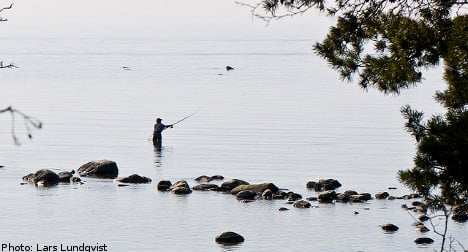The Baltic Action Plan was signed in Krakow, Poland, in 2007, with the aim of restoring the Baltic Sea’s marine environments by 2021 with cooperation from the nine countries bordering the sea.
On Monday, the WWF stated that all of the countries are not up to scratch in following the 56 proposed actions to save the sea, and that they all appear destined to fail in each objective by 2021.
Objectives include eutrophication, pollution, shipping and biodiversity. Sweden is particularly lacking when it comes to meeting the target for biodiversity protection, being the worst of the Baltic Sea countries.
Sweden was ranked equal third with Estonia in the report, following Finland and Germany. Lithuania and Russia claimed the bottom places.
“This is urgent. All countries are far behind. If they do not make a real effort, the entire plan risks being overturned,” Håkan Wirtén, Secretary General of WWF, said in a statement.
“To avoid or postpone investments to protect and restore the Baltic Sea is not responsible behaviour. Nor is this something that we who live around the sea can accept. The later we act, the more expensive it becomes,” said Åsa Andersson, Director of WWF’s aquatic unit.
The Baltic Sea, one of the world’s largest brackish water bodies, is in danger due to the increasing human usage of the water, but also because of its low level of water exchange.
The Baltic Sea countries will meet on October 3rd in Copenhagen to oversee the action plans.
TT/The Local/ep



 Please whitelist us to continue reading.
Please whitelist us to continue reading.
Member comments